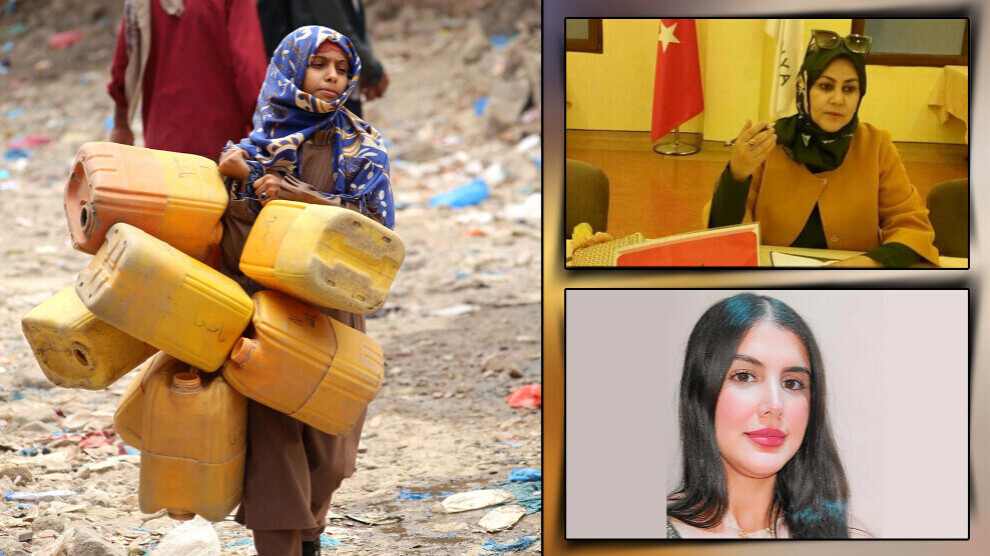Water scarcity in Morocco exacerbates suffering of villagers
Association of Moroccan Women’s Union president Khadija Ahlil announces that the members of the association have started digging water wells because they feel the helplessness of the village women affected by the water scarcity.

HANAN HARIT
Morocco- Moroccan women have been affected by climate change and water scarcity. The women living in rural areas carry water buckets for kilometers. The members of the Association of Moroccan Women’s Union have started digging water wells to support the women living in villages.
They dig water wells
Khadija Ahlil, the president of the Association of Moroccan Women’s Union, told NuJINHA that they decided to dig water wells to solve water problems faced by the women living in villages. “The members of the association decided to dig water wells because they feel the helplessness of the village women. The water scarcity has negatively affected the village women since they are responsible for finding a resource their families need to survive. The aim of the association in digging wells is to create unity among women. Other associations should support families in villages,” she said.
“Women are most affected”
Underlining that the members of the association work to solve the water problems faced by the village women, Khadija Ahlil said, “The village women also suffer from water scarcity, the lack of social justice, poverty and isolation. Women are most affected by this situation.”
Taken measures are not sufficient
According to the official figures of the Ministry of Equipment, Transport, Logistics and Water, the water potential in Morocco is estimated at 22 billion cubic meters per year. Oumaima Khalil Elfanne, a researcher specializing in environmental engineering and sustainable development, spoke to NuJINHA about the water crisis in Morocco and said, “Climate change leads to water scarcity. Morocco has taken a number of measures such as the policy of dams, the adoption of a set of water laws, and the implementation of the millennium development goals and sustainable development goals to access drinking water. However, these measures are not sufficient to confront the crisis in the country. Social and climatic justice has not been achieved, especially for the women. The situation of women living in rural areas shows the reality. Important and critical steps must be taken to solve this water crisis. First of all, the Moroccan agricultural system should be investigated. Scientific research is needed to solve the water crisis.”
